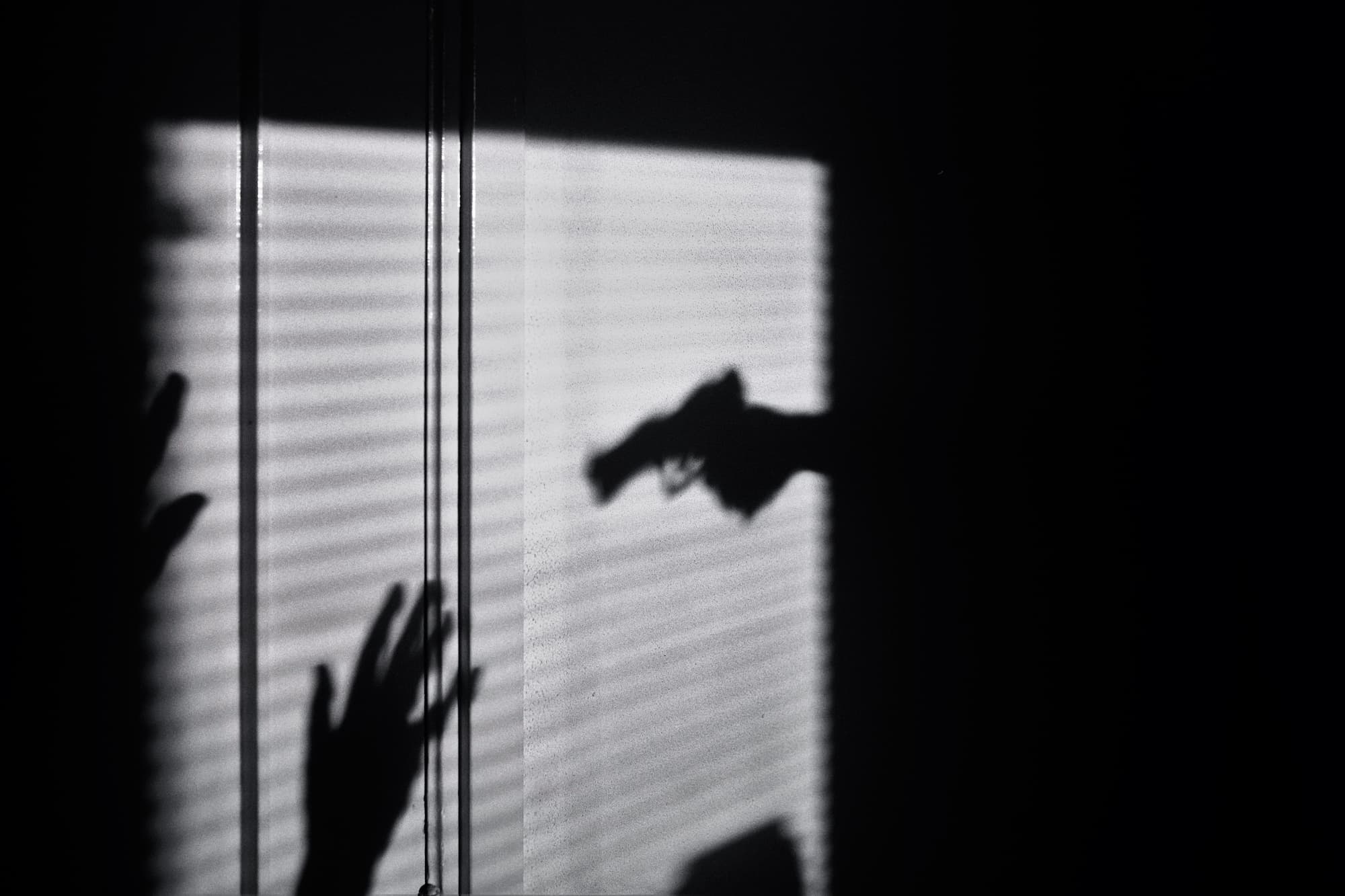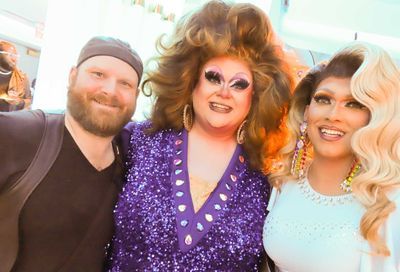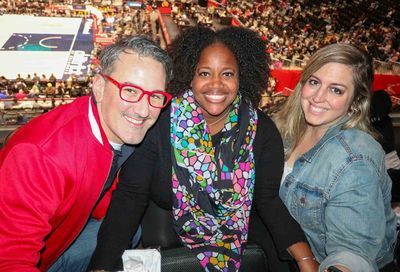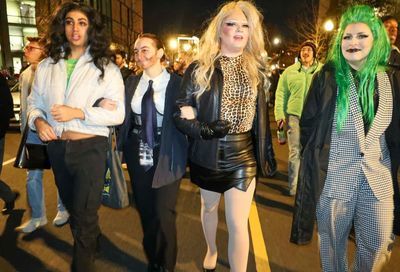Club Q Survivors Denounce Anti-LGBTQ Rhetoric and Violence
U.S. House Committee on Oversight and Reform holds hearings examining the link between hostile rhetoric and extremism.

Two survivors of the mass shooting at a gay nightclub in Colorado Springs last month testified before Congress on Wednesday, arguing that politically-motivated, anti-LGBTQ rhetoric has the potential to inspire acts of violence targeting the LGBTQ community.
The survivors were asked to testify before the U.S. House Committee on Oversight and Reform by the committee’s chairwoman, outgoing U.S. Rep. Carolyn Maloney (D-N.Y.), who called the hearing to examine the link between hostile anti-LGBTQ rhetoric and acts of violence or extremism targeting the LGBTQ community.
While most members on the committee appeared to sympathize with the Club Q victims — who submitted their testimony and did not stick around to answer lawmakers’ questions, leaving that to other experts testifying before the committee — the two parties took divergent approaches to the issue.
Democrats used the opportunity to condemn what they see as hateful rhetoric directed at members of the LGBTQ community, particularly transgender individuals and drag queens, drawing a line between such rhetoric and real or threatened violence targeting LGBTQ events or establishments. Some also argued that the lack of seriousness in addressing the ease with which violent or disturbed individuals can access firearms has exacerbated acts of violence.
Republicans, meanwhile, downplayed or outright ignored the anti-LGBTQ angle, instead arguing that all acts of violence, regardless of who it victimized, are part of a general trend towards lawlessness, which, they argue, has been exacerbated by policies restricting police officers’ actions while on duty, efforts to defund police departments or reallocate public safety dollars elsewhere, and the failure of local prosecutors to pursue maximum penalties, including long-term incarceration, against offenders.
The two Club Q survivors, bartender Michael Anderson and patron James Slaugh, the latter of whom was shot in his right arm, spoke about their experiences and how their sense of safety was shattered during the Nov. 19 attack, in which five people were killed and more than a dozen others were injured.
“It was places like gay bars and clubs that helped me embrace who I was and formed me into the man I am today. Club Q was and will once again be a safe place not just for the LGBTQ community, but for everyone else, too,” Anderson said in his testimony. “If you are fortunate enough to intimately know LGBTQ people, you will find some of the kindest, funniest, accepting and most welcoming people. Those are the people that found a safe place in Club Q and deserve to once again have that safe space.”
Anderson said he was “embarrassed” and “disgusted” over inaction on the part of congressional lawmakers who have failed to pass an assault weapons ban or restrict the ability of people with criminal records or mental health issues to access firearms. But he also pointed some of the blame at politicians who have demonized the LGBTQ community for political gain.
“To the politicians and activists who accuse LGBTQ people of grooming children and being abusers, shame on you,” he said. “As leaders of our country, it is your obligation to represent all of us, not just the ones you happen to agree with. Hate speech turns into hate actions, and actions based on hate almost took my life from me.”
Club Q founding owner Matthew Haynes, who also testified before the committee, echoed Anderson’s testimony.
“None of us ever imagined that our little bar in Colorado Springs would be the target of the next hate crime. And I repeat, we were targeted for the next hate crime,” Haynes said. “When we opened 20 years ago, Colorado Springs was a very different place. I am proud to have remained in Colorado Springs over the years, even when we did not feel welcome. Club Q has been a home for the community for 20 years. We are proud to say it will once again become our home. One man full of hate will not destroy us.”
Haynes read aloud a few hateful comments about Club Q that had been posted online, including lamentations that more people hadn’t been killed, claims that the shooter, Anderson Lee Aldrich, was “doing God’s work,” and declaring that “all gays should die.”
“We are being slaughtered and dehumanized across this country and communities you took oath to protect,” Haynes said. LGBTQ issues are not political issues. They are not lifestyles. They are not beliefs. They are not choices. They are basic human rights. And so I ask you today, not simply ‘What are you doing to safeguard LGBTQ Americans?’, but rather ‘What are you or other leaders doing to make America unsafe for LGBTQ people?’ … Let’s stop this from happening again.”

Several other witnesses representing LGBTQ groups or organizations pointed the blame for acts of anti-LGBTQ violence at anti-LGBTQ rhetoric exploited by politicians, particularly Republicans, seeking to link a bevy of bills introduced in various state legislatures — which have targeted LGBTQ visibility, drag shows, the ability of transgender youth to access gender-affirming treatments, or access to gender-affirming spaces — to an overall atmosphere of hostility that people prone to violence may use to justify their actions.
Brandon Wolf, a survivor of the 2016 Pulse nightclub massacre in Orlando, Florida, also testified before the committee, blasting “right-wing extremism” for contributing to an environment where people view anti-LGBTQ violence as acceptable
“The debate over the humanity of LGBTQ people is making life harder and less safe for people, especially in the state of Florida,” Wolf said, referring to the enactment of Florida’s “Parental Rights in Education” law, which has been dubbed the “Don’t Say Gay” bill by critics, who claim its prohibitions on discussions of LGBTQ topics infringes on the free speech rights of teachers and LGBTQ students.
“Being LGBTQ in America in 2022 means looking over your shoulder before you hold hands with someone you love. It means watching your very humanity be litigated day in and day out on every cable news network and across every social media platform,” Wolf said. “It means wondering if today is the day that hate comes armed with a clenched fist, or worse, an AR-15. It means wondering if today your little slice of normal, the thing you told yourself you didn’t deserve, comes to an end.”
But Republicans balked at those comments, arguing that left-wing extremism can be just as deadly, pointing to the 2017 shooting in which House Minority Whip Steve Scalise (R-La.) was severely injured. Still others said the panel should be focused on combating a rise in all types of violent crime, rather than just those targeting the LGBTQ community.
“It’s easier to blame Republicans than have a serious discussion about the rise of violent crimes across the nation, including this individual’s horrendous crimes at Club Q in Colorado,” Rep. James Comer (R-Ky.), the panel’s ranking member, said. “Instead, we should be focused on the alarming rise in violent crime across our country today — crimes that target all races and ethnicities.”
In one moment that was cheered by right-wing Twitter users and hailed by the New York Post editorial board as a “slapdown for woke left hypocrisy,” U.S. Rep. Nancy Mace (R-S.C.) questioned one of the panel’s witnesses, Alejandra Caraballo, a transgender activist and lawyer who is a clinical instructor at Harvard Law School’s Cyberlaw Clinic, about whether Caraballo’s past tweets casting doubt on the legitimacy of the Supreme Court and calling for people to heckle the justices who helped overturn Roe v. Wade could inspire others to violence.
Mace sought to link Caraballo’s online rhetoric to an incident involving a man who was arrested for allegedly plotting to kill Associate Justice Brett Kavanaugh, and — using Caraballo’s words against her — questioned whether such rhetoric constituted a “threat to democracy.”
“It’s clear to me that we have to call out the threats to our democracy emanating from where they come, whether it’s the right or the left,” Mace said.
Charles Lehman, a public safety researcher at the conservative Manhattan Institute for Policy Research, said that while anti-LGBTQ hate crimes are a serious problem, the best way to reduced the frequency of such attacks is by incarcerating dangerous felons who commit violent acts.
“The best way to combat hate crime is to engage it like other kinds of crime. Hate based offenders are not specialists, and the traditional criminal justice system is an effective way to control hate crimes,” Lehman testified. “Many people, sadly, bear some animus towards others on the basis of their identity, including towards LGBTQ people. But the number of people who bear animus is almost certainly much larger than the number of people who will commit a hate crime.
“This is, I submit, because bias motivated offending also requires the anti-social tendencies and lack of self-control, which characterizes criminal offending generally to commit a hate crime. It is not enough to hate. One must also feel entitled to act out that hate on another individual,” he added, criticizing efforts to reduce bias through education as inefficient and a waste of money, and instead advising lawmakers to hire more police — between 50,000 and 80,000, which would restore the number of police to what it was prior to the Great Recession — to help protect the public from dangerous individuals.
“The criminal justice system is the correct venue for reducing the frequency of bias motivated offenses,” Lehman said. “Hate against LGBTQ people and otherwise is a serious issue. And we must take it seriously. Doing that means treating hate criminals like the criminals they are, and bring the full power of the justice system to bear on them.
Support Metro Weekly’s Journalism
These are challenging times for news organizations. And yet it’s crucial we stay active and provide vital resources and information to both our local readers and the world. So won’t you please take a moment and consider supporting Metro Weekly with a membership? For as little as $5 a month, you can help ensure Metro Weekly magazine and MetroWeekly.com remain free, viable resources as we provide the best, most diverse, culturally-resonant LGBTQ coverage in both the D.C. region and around the world. Memberships come with exclusive perks and discounts, your own personal digital delivery of each week’s magazine (and an archive), access to our Member's Lounge when it launches this fall, and exclusive members-only items like Metro Weekly Membership Mugs and Tote Bags! Check out all our membership levels here and please join us today!
























You must be logged in to post a comment.